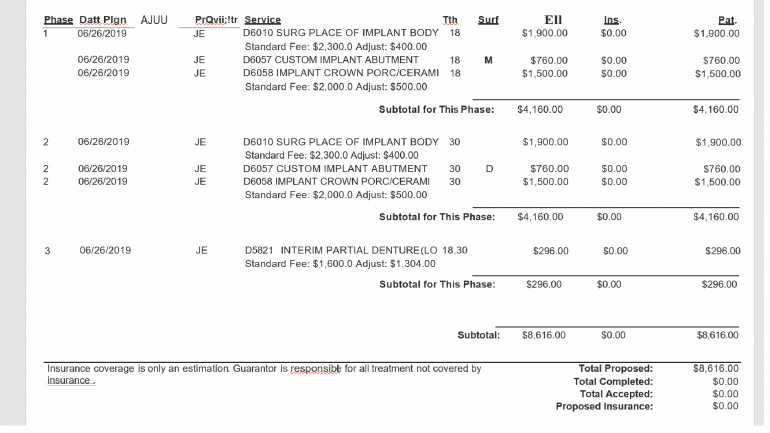
Dental Code D7983: Closure of Salivary Fistula
Dental Code D7983 refers to the procedure of closing a salivary fistula, which is an abnormal opening or passageway that allows saliva to leak out from a salivary gland or duct. This condition can occur due to various reasons, such as trauma, surgery, or congenital defects, and it requires prompt medical attention to prevent further complications.
What does Dental Code D7983 mean?
Dental Code D7983 is a specific code used in the dental industry to identify the procedure of closing a salivary fistula. This code is part of the Current Dental Terminology (CDT) system, which is a comprehensive list of codes used to describe dental procedures and services. The code D7983 is categorized under the "Surgical Services" section of the CDT, indicating that it involves a surgical intervention.
Preoperative Evaluation and Preparation
Before the closure of a salivary fistula, the dentist or oral surgeon will conduct a thorough evaluation of the patient's medical history and the extent of the fistula. This may involve physical examination, imaging tests such as X-rays or CT scans, and possibly endoscopic evaluation to assess the size, location, and underlying cause of the fistula. The dentist will also discuss the procedure with the patient, explain the risks and benefits, and obtain informed consent. This comprehensive evaluation is crucial in determining the appropriate treatment plan and ensuring the best possible outcome for the patient. The dentist may also order additional tests, such as blood work or a salivary gland function test, to gather more information about the patient's overall health and the condition of the salivary gland. Additionally, the dentist will assess the patient's dental and oral hygiene status, as this can impact the healing process and the long-term success of the fistula closure procedure.
Anesthesia Administration
The procedure is typically performed under local anesthesia, which numbs the specific area around the fistula. In some cases, depending on the size and location of the fistula, the dentist may also administer a regional anesthetic to numb a larger area of the mouth and face. The dentist will carefully monitor the patient's comfort level throughout the procedure and administer additional anesthesia as needed. This ensures that the patient remains comfortable and relaxed during the entire procedure. The type and amount of anesthesia used will be tailored to the individual patient's needs, taking into account factors such as their medical history, any existing conditions, and the complexity of the procedure. The dentist will also closely monitor the patient's vital signs and adjust the anesthesia as necessary to maintain a safe and effective level of pain control.
Fistula Identification and Exposure
Once the area is numbed, the dentist will carefully expose the salivary fistula by making a small incision around the opening. This allows the dentist to clearly visualize the fistula and the surrounding tissues. The incision is made with great precision to minimize tissue trauma and ensure the best possible visibility of the fistula. The dentist may also use specialized instruments or magnification devices to enhance their view of the surgical site. This step is crucial in accurately identifying the location and extent of the fistula, which will guide the subsequent steps of the procedure.
Fistula Dissection and Closure
The next step involves carefully dissecting the fistula from the surrounding tissues. The dentist will carefully separate the fistula from the salivary gland or duct, ensuring that the entire tract is removed. Once the fistula is fully exposed, the dentist will then close the opening using sutures or other specialized techniques, such as tissue grafting or flaps. The goal is to create a watertight closure that will prevent any further leakage of saliva. The dentist may use various suturing techniques, such as interrupted or continuous sutures, to ensure a secure and durable closure. In some cases, the dentist may also utilize specialized materials, such as collagen or fibrin sealants, to further enhance the closure and promote healing.
Wound Closure and Hemostasis
After the fistula has been successfully closed, the dentist will carefully close the incision site using sutures or adhesives. They will also ensure that there is proper hemostasis, which means that any bleeding is controlled and stopped. The dentist will meticulously inspect the surgical site to confirm that there are no residual openings or areas of ongoing bleeding. If necessary, additional sutures or hemostatic agents may be applied to ensure a complete and secure closure. This step is essential in preventing postoperative complications, such as infection or further leakage of saliva.
Postoperative Care and Monitoring
Following the procedure, the patient will be provided with detailed instructions for post-operative care, including pain management, wound care, and any dietary or activity restrictions. The dentist will also schedule follow-up appointments to monitor the healing process and ensure that the fistula remains closed. The patient may be prescribed pain medication or anti-inflammatory drugs to manage any discomfort or swelling. They may also be advised to follow a soft diet and avoid certain activities that could disrupt the healing process. The dentist will closely monitor the patient's progress, checking for any signs of complications, such as infection or persistent salivary leakage. Additional interventions, such as wound dressings or salivary gland treatments, may be necessary if any issues arise during the healing period.
Summary of Dental Code D7983
Dental Code D7983 refers to the surgical procedure of closing a salivary fistula, which is an abnormal opening or passageway that allows saliva to leak out from a salivary gland or duct. The procedure involves a detailed process of preoperative evaluation, anesthesia administration, fistula identification and exposure, dissection and closure, wound closure and hemostasis, and postoperative care and monitoring. The dentist or oral surgeon will work diligently to ensure a successful outcome and prevent any further complications related to the salivary fistula. Looking for affordable dental procedures? Visit Dr. BestPrice, the leading dental auction platform, to find the best deals on oral healthcare.
